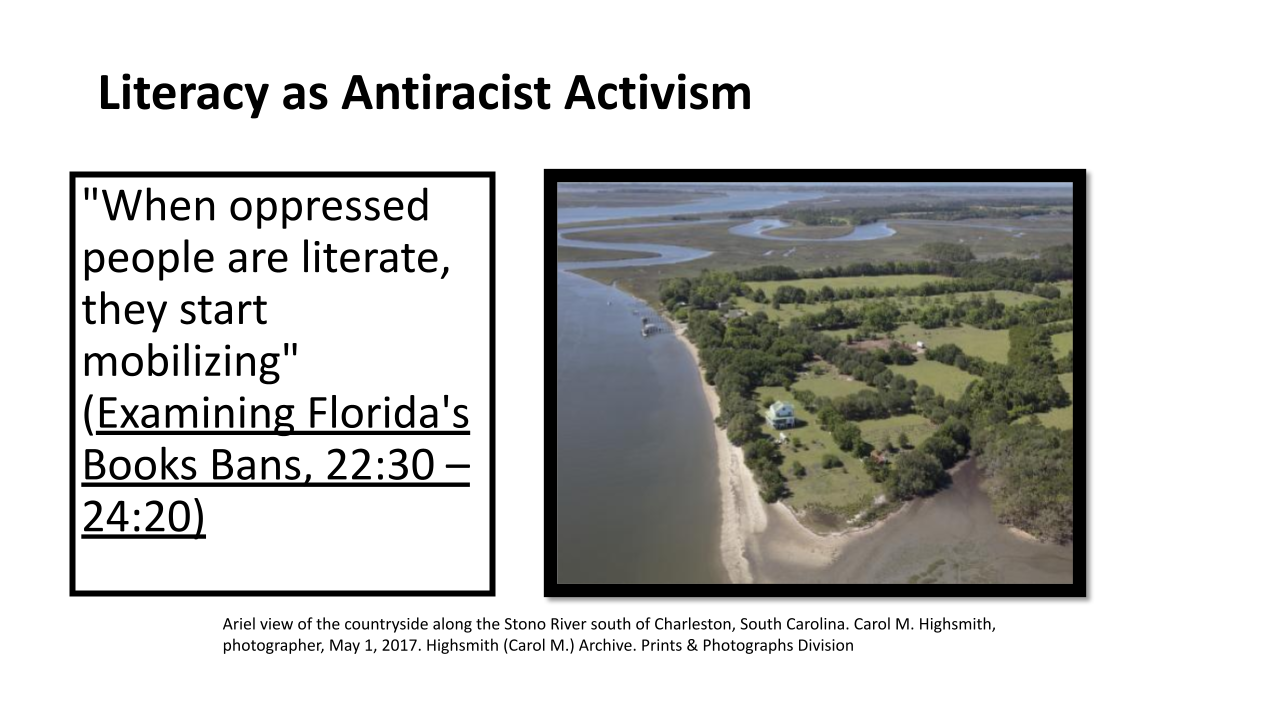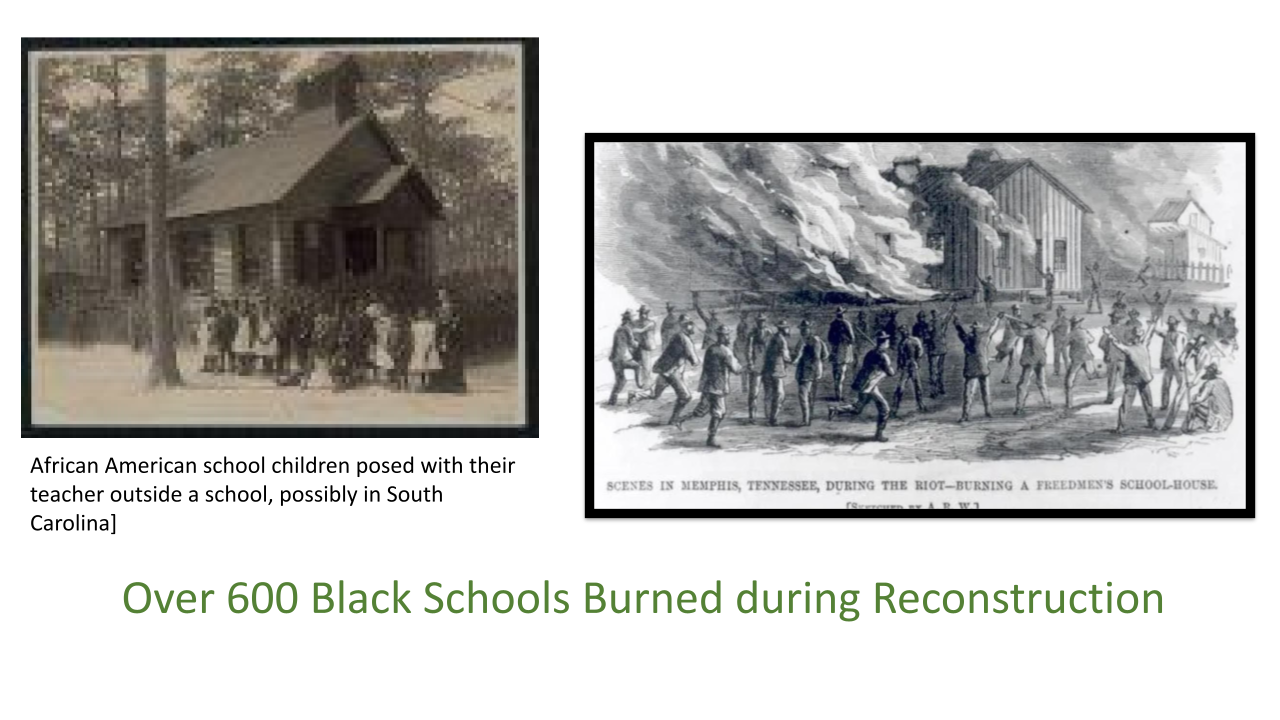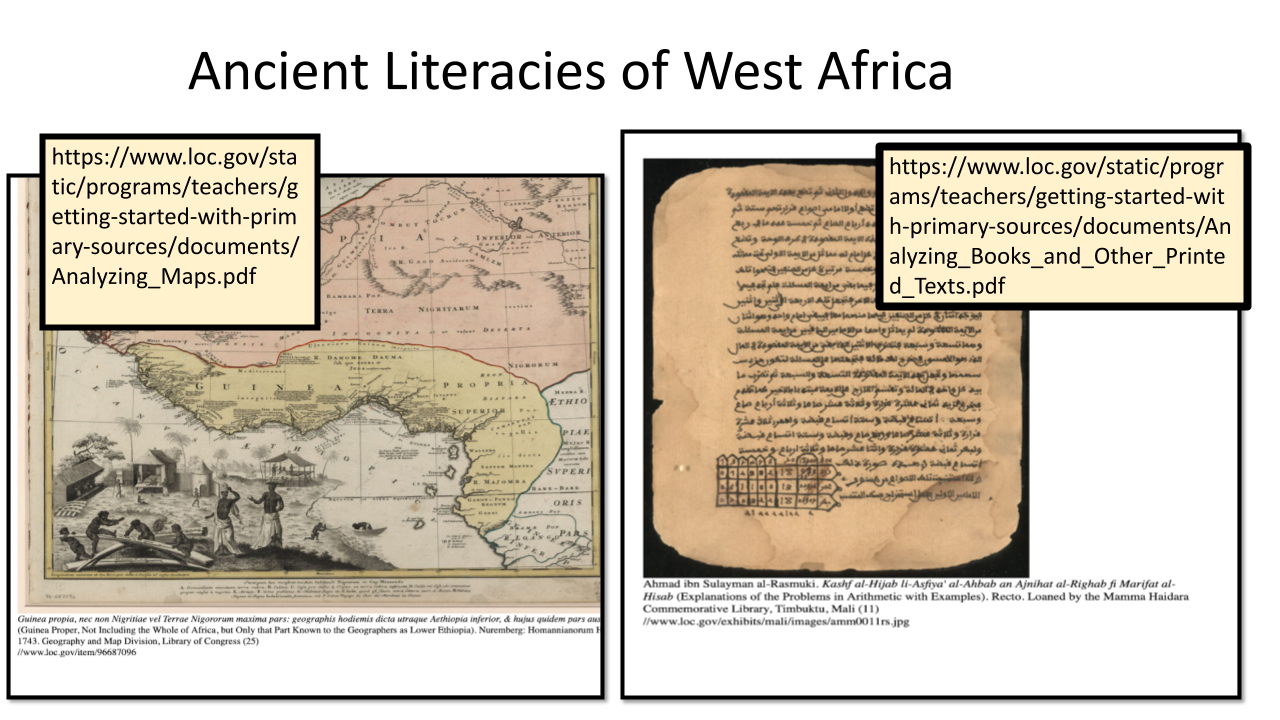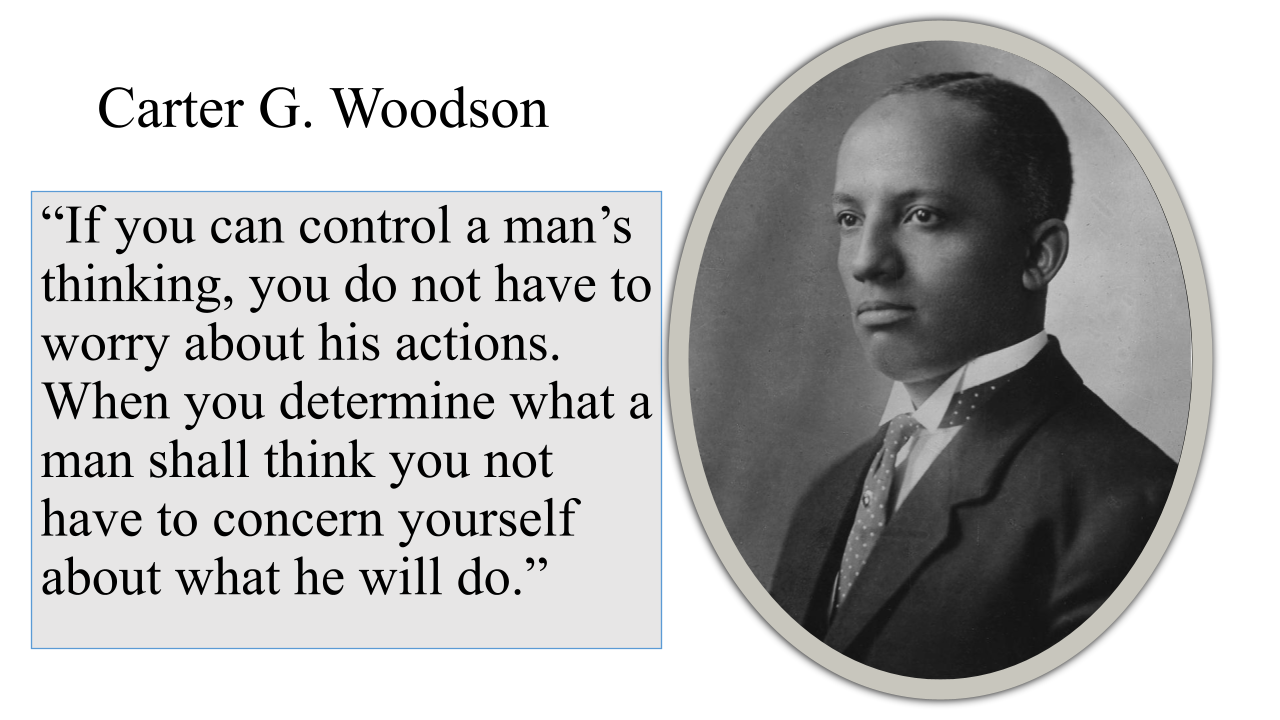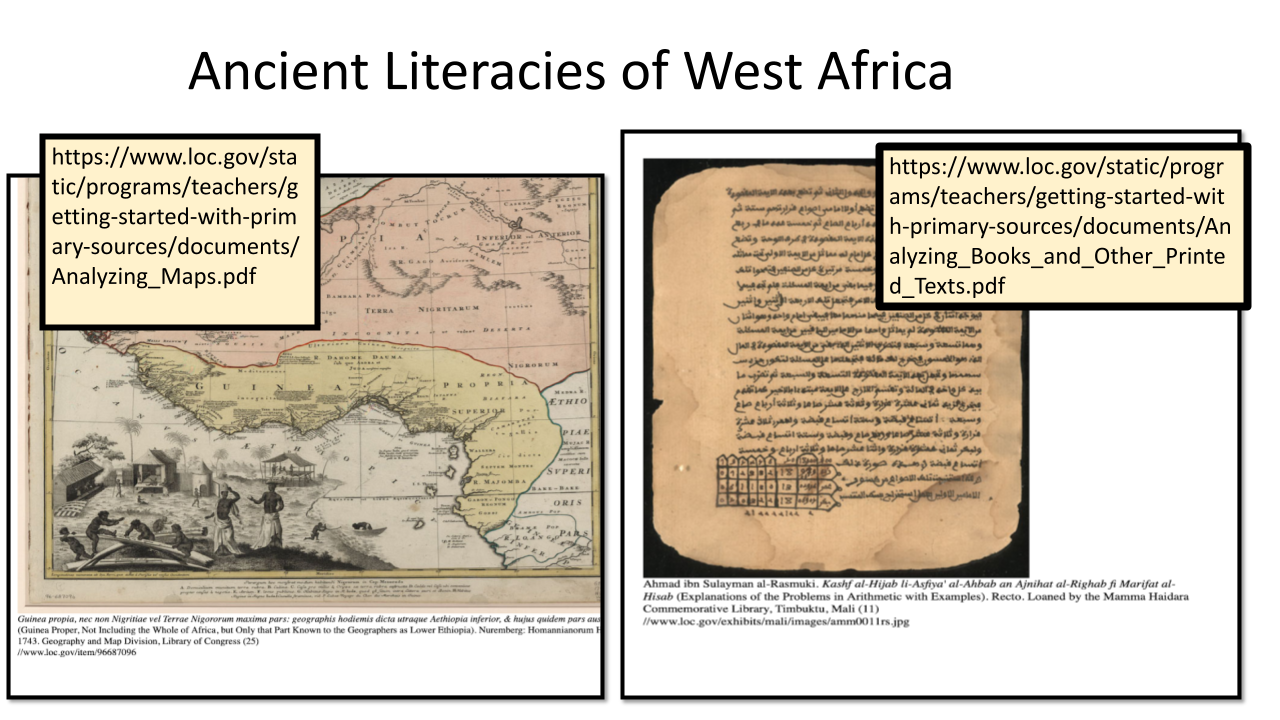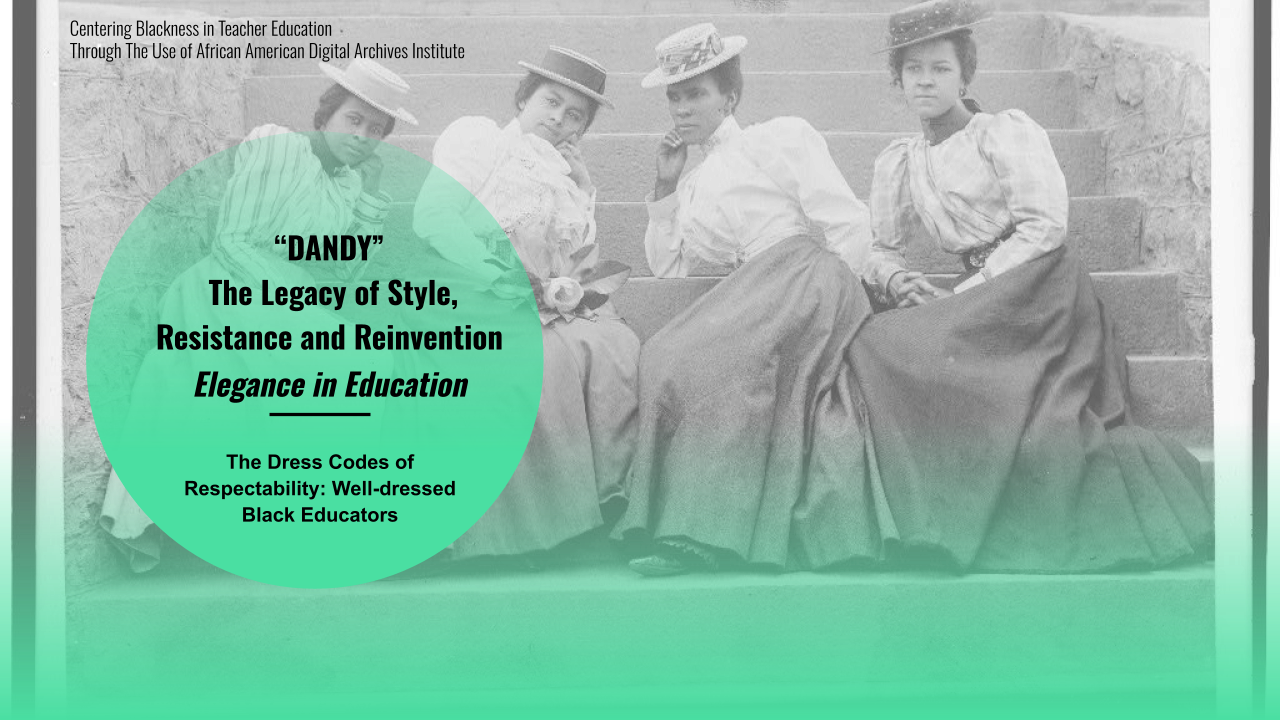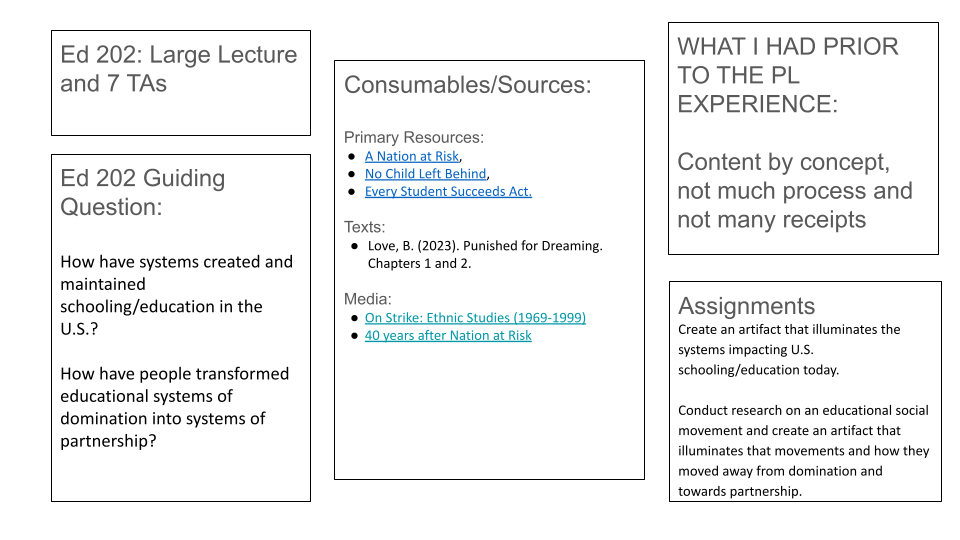Overview of Lesson:
After a focused exploration of how restriction or omission of knowledges is a part of colonial projects, as well as how resistance to such projects might arise from a study of historical fugitive pedagogues such as Carter G. Woodson and Tessie McGee, students will participate in a Discussion Board. In addition, students will use a worksheet to analyze the language of legislative texts using Comer & Simpson’s (2021) guiding questions for critical literacy. Then, students will imagine how the tactics of the past could be utilized today in response to legislative texts. In other words, by taking on the imagined role of a historical fugitive pedagogue, how might educators today maintain compliance with the policy at hand, without shying away from justice-oriented pedagogies?
Author: Dr. Erin Miller
Library of Congress Resources:
- https://www.loc.gov/item/94507780/
- https://www.loc.gov/resource/hhh.dc0303.photos?st=gallery
- https://www.loc.gov/static/programs/teachers/getting-started-with-primary-sources/documents/Analyzing_Maps.pdf
- https://www.loc.gov/static/programs/teachers/getting-started-with-primary-sources/documents/Analyzing_Books_and_Other_Printed_Texts.pdf
Instructions for Task:
- Search for fugitive pedagogues like Carter G. Woodson and learn about their commitment to teaching Black History.
- Identify how these teachers refused whiteness and remained committed to an accurate version of Black history.
- Identify how these lessons could be applied in a contemporary context.
